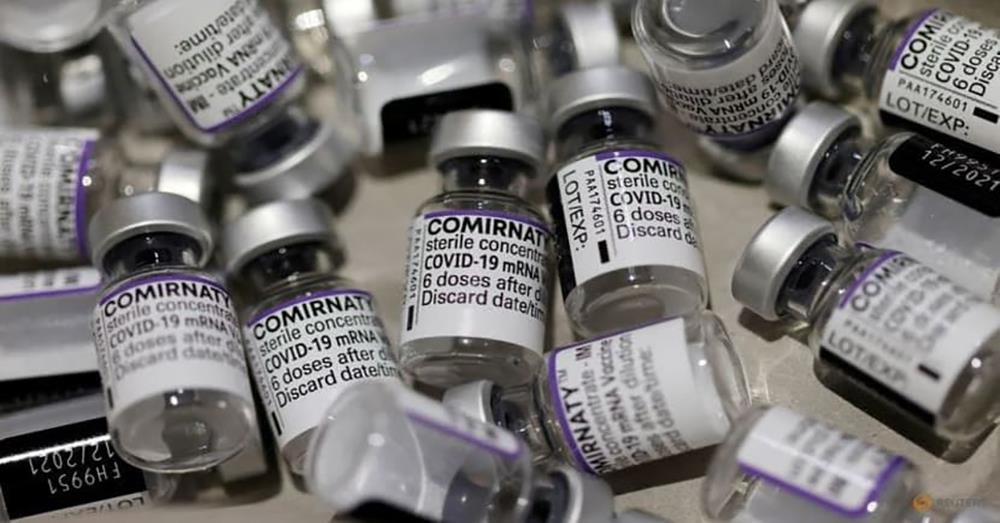WASHINGTON, Dec 8 (Reuters) - BioNTech and Pfizer said on Wednesday (Dec 8) a three-shot course of their COVID-19 vaccine was able to neutralise the new Omicron variant in a laboratory test, an early signal that booster shots could be key to protection against infection from the newly identified variant.
The German and US companies said two doses of their vaccine resulted in significantly lower neutralising antibodies but could still be protective against severe disease.
"The first line of defence, with two doses of vaccination, might be compromised and three doses of vaccination are required to restore protection," BioNTech Chief Medical Officer Ozlem Tuereci said at a press conference.
The companies also said they could deliver an upgraded vaccine targeted specifically at the Omicron variant in March 2022 if one is needed.
BioNTech and Pfizer are the first manufacturers of a COVID-19 vaccine to issue an official update on the efficacy of their shot against Omicron.
In samples of blood taken around a month after the third shot the Omicron variant was neutralised about as effectively as two doses neutralised the original virus identified in China.
The Omicron variant, first detected in southern Africa and Hong Kong last month, has triggered global alarm about another surge in infections. Cases have already been reported from Japan to the United States and across Europe.
"The new data from Pfizer on vaccine effectiveness against Omicron is encouraging," US President Joe Biden tweeted on Wednesday. "Anyone who is eligible and has not been boosted should go get a booster today."
BioNTech CEO Ugur Sahin suggested that countries might consider shortening the time period between second and third doses of the vaccine to combat the new variant.
He cited recent moves by countries including Britain to bring the third shot forward to three months after the second shot, from six months previously.
"We believe this is the right way to go particularly if the Omicron is now spreading further, to enable a better level of protection in the winter season," Sahin said.
Dr Walter Orenstein, a professor at Vanderbilt and former director of the US CDC's immunisation programs, said he found the data encouraging because it suggests that the current vaccines are still usable against the Omicron.
"We may not have to change the vaccine," he said. "We may be able to get by with the current vaccine, at least for repression of severe disease."
